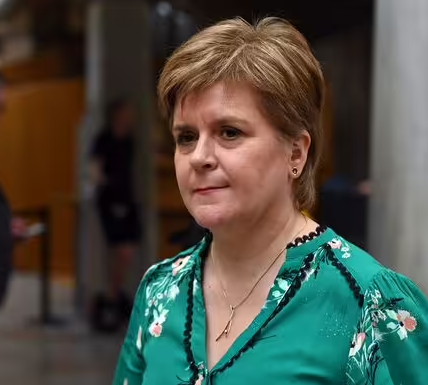Nigel Farage claims his party Reform UK can win the next election.
It might seem crazy. After all, he is one of only five Reform MPs while Labour won 411 at the last election. It would take a massive upset for Mr Farage to become Prime Minister.
But he might be right. Here are the three reasons why Reform really could win power.
First, Reform are in pole position to take on Labour across the north and Midlands – the same regions that handed former Tory leader Boris Johnson a landslide win in 2019.
While they only won in five constituencies last year, Reform actually came second in 97 seats including 88 with Labour MPs.
It means that if things keep on going wrong for Sir Keir Starmer, Reform are ready to capitalise on Labour’s unpopularity in the so-called “red wall” across England, and in parts of Wales. Their target seats at the next general election are set to include Llanelli, Hull East, Bradford South, Rotherham, North Durham, Derby South and Sunderland Central.
Secondly, some Conservatives fear their leader, Kemi Badenoch, is leaving it too late to take the fight to Sir Keir Starmer and tell voters why they should hand her the keys to Number 10.
She’s won the argument over grooming gangs in recent days, exposing Labour’s failure to back a national inquiry into the problem.
But she’s slow to explain why she should be Prime Minister instead.
Ms Badenoch plans to wait until 2027 before making big policy announcements. Instead, she plans to work quietly behind the scenes on “renewing” the Conservative Party.
She believes that Tories must take time to prove they are once again a serious and credible party before sceptical voters will listen.
But one Conservative said: “The unpopularity of Labour is actually a problem for us. Voters are going to start looking for a replacement sooner than we expected, and if we leave a gap in the market then Reform might fill it.”
The third reason is that Reform have got serious about winning power.
For a long time, people dismissed Reform, or the Brexit Party as it used to be known, as “the Nigel Farage show”. It had a charismatic leader but wasn’t interested in the hard work involved in winning power.
That’s changed. Reform has set up constituency branches across the country, in a similar way to traditional parties such as the Conservatives and Labour, and has launched a drive to recruit council candidates for May’s local elections.
This is important, because the traditional parties use their councillors as activists organising campaigns and delivering leaflets in general elections too. Now Reform is building its own army of local campaigners.
It would still be a brave punter who takes a bet on Reform actually winning the next election – even though a recent poll by Find Out Now put them on joint first place with Labour on 25 percent, with the Tories on 20 percent.
But of the three major parties it does look like Reform has the most momentum at the moment.


